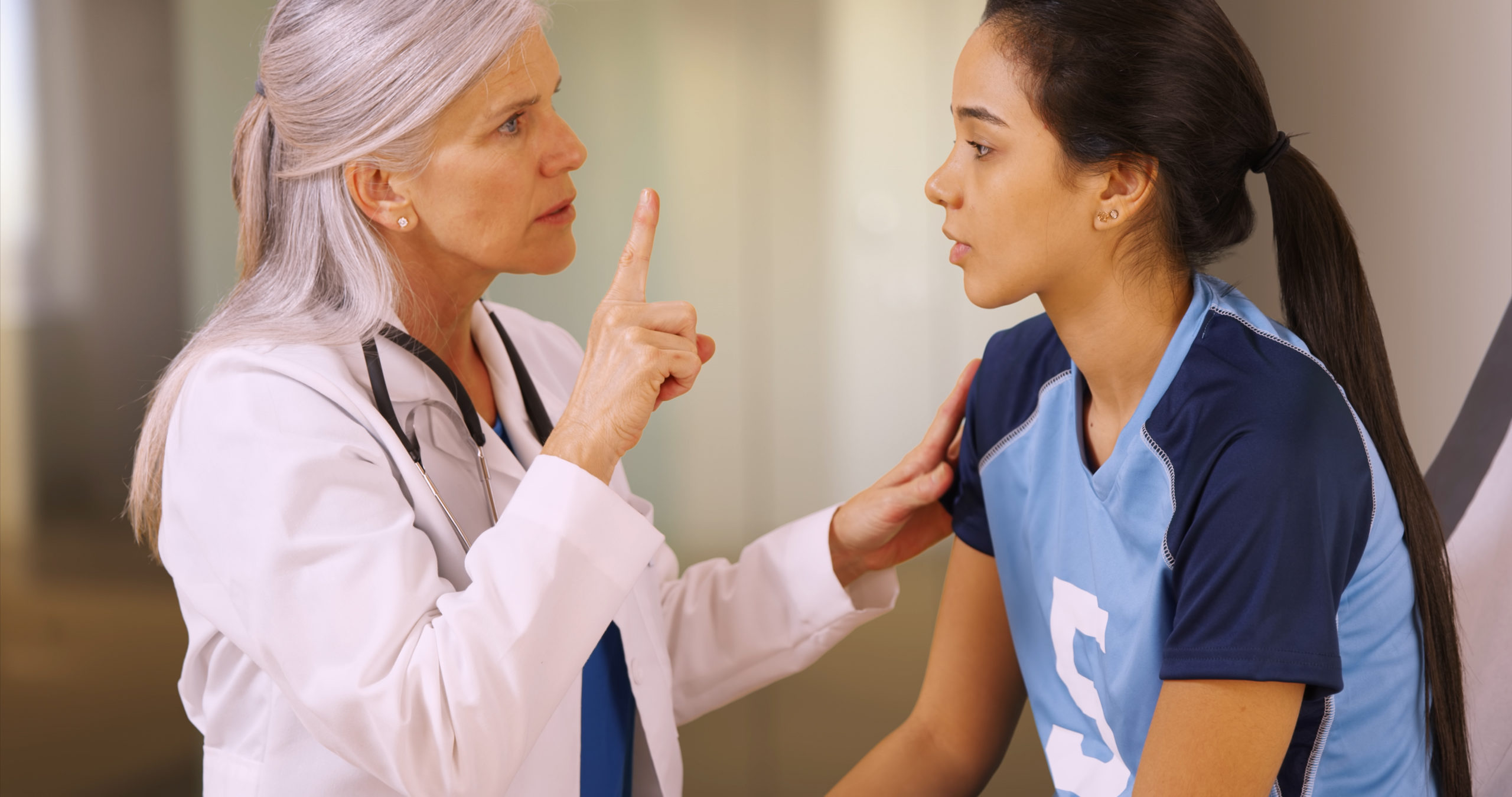Types of Concussions
A concussion is a mild traumatic brain injury, or mTBI. We no longer use the old grading system (grade I, II, or III) to identify types of concussion. The grading system used factors present at the time of injury, such as whether the individual lost consciousness or not. A concussion should never be minimized just because the individual did not lose consciousness. In fact, only about 10% of individuals lose consciousness when they sustain a concussion. All concussions are serious brain injuries and should be treated as such.
Understanding Types of Concussion
 Generally, concussion diagnosis is simply yes or no, with no grading or degree. This is because no two concussions are the same and each individual experiences a concussion differently. In short, the number of symptoms, intensity of symptoms, and the time it takes to recover are what determine the severity of a concussion. In some situations, an individual with relatively mild symptoms may take a long time to recover. Conversely, an individual with severe symptoms may recover relatively quickly. For this reason, physicians often do not classify a concussion until after the individual has fully recovered.
Generally, concussion diagnosis is simply yes or no, with no grading or degree. This is because no two concussions are the same and each individual experiences a concussion differently. In short, the number of symptoms, intensity of symptoms, and the time it takes to recover are what determine the severity of a concussion. In some situations, an individual with relatively mild symptoms may take a long time to recover. Conversely, an individual with severe symptoms may recover relatively quickly. For this reason, physicians often do not classify a concussion until after the individual has fully recovered.
Additionally, doctors consider how the concussion affects the individual’s ability to perform normal daily activities. If symptoms interfere with the ability to go to school or work, especially over an extended period of time, the injury may be considered severe. While most concussions resolve within a month, symptoms can last much longer for some people. This is sometimes referred to as post-concussion syndrome. Although not common, individuals who have a history of multiple concussions or have a repeat injury are at a greater risk of post-concussion syndrome.
Proper Care for All Types of Concussion
At The Center Foundation, our concussion protocol reduces the risk of repeat concussions and Second Impact Syndrome. It accomplishes this by ensuring that athletes do not return to sports too soon following injury. Additionally, for those who are dealing with more significant injury, it includes steps to provide necessary treatment specific to the issues they are dealing with. Whether they need accommodations in the classroom, have symptoms of depression or other emotional disturbances, or physical issues such as balance, vision, or headaches, following our concussion protocol ensures that proper care is provided regardless of the type or severity of injury.
GET THE HELP YOU NEED WHEN YOU NEED IT.
If you believe your child has a concussion, you should seek medical attention from a concussion specialist. NOWcare at The Center, offers immediate concussion evaluation with no appointment. NOWcare is available MONDAY – FRIDAY 9 A.M. – 4 P.M. with same day ImPACT testing, if needed. Click here for more information.
Next, Dr. Ugalde’s \ Concussion Clinic at The Center offers support to those experiencing longer-term concussion symptoms. Call 541-322-2214 for more information.
In addition, if your child plays high school sports in Central Oregon, your high school athletic trainer is available during school hours. Find your high school athletic trainer HERE.
Get the support your child needs to safely recover from a concussion.
Get your child back in the game safely
We are passionate about getting Central Oregon youth the care they need when they have experienced a concussion. To this end, we follow a research-based model of management in treating concussions. Like you, our focus is on getting your child healthy, and safely returning them to the activity they love.
Additionally, we strive to provide the most current concussion information on these pages. However, if you do not find what you are looking for here, please contact us.
The content is not intended to be a substitute for professional medical advice, diagnosis, or treatment. See our Terms of Use for more information.
